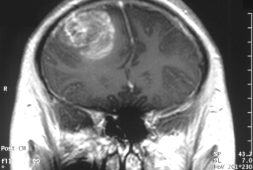
You might equate heart failure with a heart attack — that sudden feeling of intense chest pain that radiates down the arm. But a heart attack is not the only sign of heart failure, and it is usually not even the first one to show up.
Heart failure, which is also known as congestive heart failure, is a chronic and progressive condition wherein your heart is unable to pump as much blood as your body needs. It means that your heart is not working as efficiently as it should, not that it has stopped working altogether. In some cases, the heart has a difficult time pumping a sufficient amount of blood to send to the other organs in the body. In others, the muscles of the heart stiffen and harden, which reduces the flow of blood to the heart.
Unfortunately, around 5.7 million Americans suffer from heart failure, according to the National Heart, Lung, and Blood Institute. It is the most common cause of hospitalization in people over the age of 65, but the condition can affect both adults and children. There is currently no cure for heart failure, but with treatments that may include medication and lifestyle changes, a patient can look forward to a longer and better quality of life.
However, complications may arise when heart failure is not immediately recognized and diagnosed. The problem is that the condition often develops gradually, and its symptoms can easily be mistaken for those of some other ailment. That is why it is crucial to know what to look out for.
Here are ten signs of a heart problem you should be watchful for.
1. Feeling Short of Breath
Your heart and lungs work hand in hand to deliver oxygen-rich blood throughout your body. When your blood has been depleted of oxygen, your heart pumps it to your lungs to renew its oxygen content. If you have heart failure, your heart may struggle with delivering the blood enriched with oxygen to the rest of your body. This is what causes shortness of breath, which is when you feel like you are still not getting enough oxygen no matter how deeply you inhale.
2. Difficulty with Physical Activities
With heart failure, you can experience shortness of breath even while you are at rest. But the feeling becomes worse when you exert yourself even just a little bit. Exercising, and, really, any physical activity, can feel like such a great effort. Merely walking a short distance can leave you feeling unable to catch your breath. You might think that it is just a sign that you need to hit the gym more often, but it can actually be a symptom of something much worse.
3. Difficulty Lying Down Flat on the Back
Lying flat on your back causes some of the blood in your legs to flow into your bloodstream and back to your heart. An increased amount of blood may prove to be too taxing on your ticker if you have heart failure. This can leave you feeling breathless, and you may need to prop your head on some pillows to relieve your shortness of breath.
4. Swelling in the Legs and Feet
If your heart is not able to pump blood efficiently, it may result in less blood flowing to your kidneys. This may trigger your kidneys to retain more fluid in an effort to make up for the decreased blood flow. One of the first signs of water retention is swelling in the legs and feet, which is also known as edema. You may notice that your skin looks stretched or shiny, or that pressing it leaves a dimple in your skin for several seconds.
5. Sudden and Unexplained Weight Gain
Another sign of water retention that may be caused by heart failure is a sudden and unexplained weight gain. The fluid that builds up in your body may start to show in your arms and abdomen. You might think that it is just an accumulation of fat, but if your weight gain occurs suddenly or with no apparent cause, it may be a result of water retention that may possibly be linked to heart failure.
6. Having a Frequent Need to Pee
Retaining fluid can also cause you to pee more often than usual. It is one way your body tries to get rid of the excess fluids. If you find yourself needing to go more often, better take extra notice of your habits and of other possible symptoms that you might be experiencing. For example, if you haven’t been making any changes in your fluid intake, it might be that your excessive peeing is due to retained fluids. If such is the case, attempting to reduce your peeing by cutting down on your water intake might just make matters worse, as your body might hold on to fluids even more in order to avoid dehydration.
7. Being Constantly and Excessively Fatigued
Because heart failure causes your heart to work less efficiently, making it difficult to pump enough blood throughout your body, your blood flow is diverted towards your vital organs, particularly your brain. The rest of your body does not receive as much blood as needed, including your limbs and muscles. This can make you feel weak and fatigued all the time.
8. Feeling Nauseous or Lacking in Appetite
When your blood flow is diverted towards your vital organs, one of the parts that become neglected is your gastrointestinal (GI) tract. With a reduced amount of blood flow, its functions slow down and this can affect you in a number of ways. You may experience nausea, a lack of appetite, indigestion, constipation, and other symptoms related to your GI tract.
9. Feeling Dizzy or Lightheaded
Despite being one of the vital organs your heart directs your blood flow to, your brain can still become affected if you have heart failure. The condition may cause problems with your circulation that can affect the amount of blood that reaches your brain. If this organ does not get enough blood, a host of other symptoms may crop up, including dizziness, lightheadedness, confusion, mild disorientation, difficulty concentrating, and memory problems.
10. Having Hands and Feet That are Constantly Cold
If heart failure causes problems with your circulation, you might begin to notice that your hands and feet are always cold. This constant chill is not necessarily a sign of heart failure, as some people have naturally colder hands and feet. But if you feel that it is a cause for concern or if you begin noticing other signs related to the condition, it would be prudent to get yourself checked.
What to Do if You Notice Symptoms of a Heart Failure
A heart failure that remains untreated may lead to complications and may even threaten your life. If you observe any of the symptoms listed here, especially if you have other causes for concern, you should see your physician immediately. You might be tempted to attempt to fix what appear to be minor issues on your own, but putting your doctor’s appointment on hold can only make matters worse.
Early diagnosis means that your doctor can address your symptoms before they worsen or before your condition blows up. If caught at an early stage, you may only need to take medications and make lifestyle changes to treat your problem. But if complications have already set it, you may need to have surgery or even a heart transplant. That is why it is crucial to be on the lookout for any sign that you might have heart failure.



